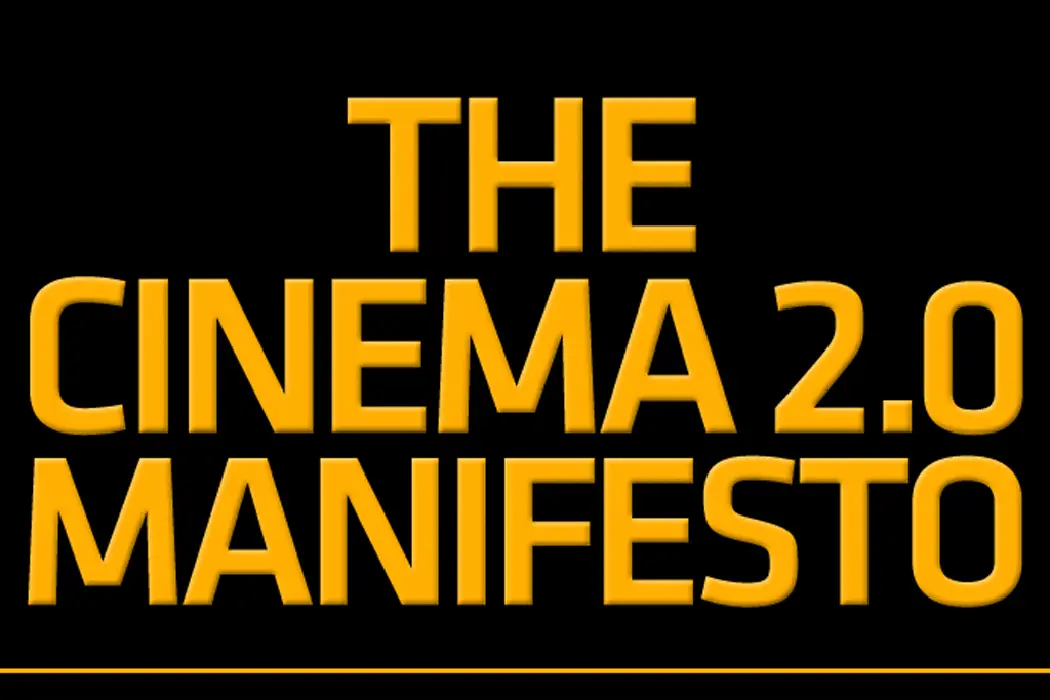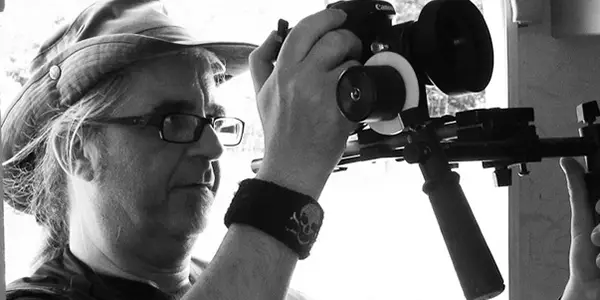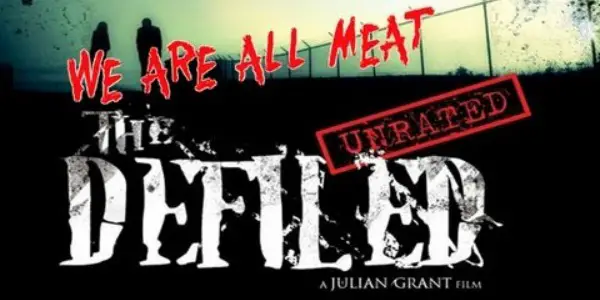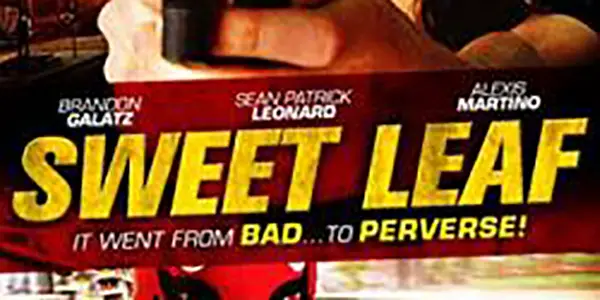Interview With Julian Grant, Author Of THE CINEMA 2.0 MANIFESTO

Michael Pementel is a Columbia College Chicago graduate of the…
Film to some is much more than a hobby, but a lifestyle. Sometimes it can be that art form we bonded over with a loved one, or that art form that inspired our imagination as children. Perhaps that inspiration grew and we became artists who saw film as something more than to enjoy, but also something we could create. This description fits a large chunk of us living in the world, bubbling with stories we want to share.
In today’s age, $200,000 is considered the budget for a short film. Unless we are born into great wealth, not many of us start out with that kind of dough. This “small” estimation can help to cover: equipment, location rentals, insurance on both, paying your crew, feeding your crew, travel, software editing, and more.
Going from the ideas and stories in your mind, to the physical reality of things can be daunting. You have the drive and willingness to create, but where the hell are you exactly going to get all your equipment? How the hell exactly are you going to come up with that kind of money?
What if I told you there was a way to make your stories come to life, doing more with less? What if I said that if you held onto that inspiration and passion, continuing to push yourself, you would eventually see your art come to life? It’s certainly possible given the time, effort, resources, and determination.
But don’t take my word for it, go ahead and listen to what Julian Grant of The Cinema 2.0 Manifesto has to say.
Who Is Julian Grant?
Julian Grant is a Canadian transplant here in the states who has worked in film for more than 25 years, and who currently teaches film at Columbia College Chicago. As a child he fell in love with the classic Hollywood pictures, with some science fiction and B-movies tossed into the mix. His work has appeared with HBO, Lionsgate, Syfy, Walt Disney, and many others.
Right away, Julian Grant is all about making films above movies. As Grant puts it, “Movies are what the Hollywood producers control … and they’re really driven by money. Whereas films, are the domain of the auteur. That mad woman or man, who is the writer, producer, or director, with the crazy hair up their ass, who just has to tell the story no matter what.”

The original and unique is far more rewarding to Grant than the mindless pumping out of already existing properties. While he’s had plenty of opportunities with major studios, it is his own work with no big budgets that have brought him greater passion. “Back when I was a movie maker, I made movies to make money. As a filmmaker, I’m an unfettered artist, so it’s not about living or being able to support myself from my art.”
Even when working for major production companies, Julian Grant’s success has always stemmed from his “Do more with less” mentality. His budgeting skills have allowed him the ability to create work that speaks volumes in quality of its characters and stories, using whatever equipment is available to him.
His independent work reflects his ideals, passions, and interest through characters and story. Having created many features and short films in his career, Grants’ skills and mastery explore a range of genres and subject matter. He’s created everything from an explosive neo-noir (Sweetleaf), a tribute to Night of The Living Dead (The Defiled), to midnight horror magic (Arkham Sanitarium: Soul Eater).
He has made all his pictures with limited to no funding. And how does he do this? Everything Grant has learned in his career is detailed within The Cinema 2.0 Manifesto.
What Is The Cinema 2.0 Manifesto?
“This is my 151 proof shot of DIY, guerrilla filmmaking,” Julian Grant says when describing the content of The Manifesto.
The book is one of the strongest, most sincere forms of DIY mentality and advice. Within its first few pages, The Manifesto is straight forward in its message, part of it stating that DIY indie cinema is the way to freedom. Instead of falling into the rat race of trying to be like [insert famous director], Grant invites you to challenge the mainstream, and create the pictures you want.
Grant is upfront with who this book is for. If you are aiming to purely get famous or make large bucks out of your work, then The Cinema 2.0 Manifesto may not be up your alley. Grant wants to encourage the artists who are aching to tell a story, and who will take any means they can.

The Manifesto takes every component one can think of in creating film, and breaks it down simply. Everything from the essentials to writing a script, how to find affordable equipment, to how to effectively share your work, is expressed with great detail. Where Grant sees the first problem in young artists is when the eyes are bigger than what is actually possible.
“That’s the problem that most writers don’t take into account when they create,” he shares, when artists try to copy the flare of big name film creators. “They create this elaborate cart, and try to find the horses to pull it.” The Manifesto kicks things off with the concept of reverse-engineering your production. Grant says this applies to everything, as he comments, “… Your concepts, your stories, your films, your webisodes, based around resources you already have right now.”
Why try and write this sci-fi epic when you don’t have the means to create the visuals, when you have this nifty crime story, and own plenty of gun props? By taking what you already have for resources, Julian Grant says that this will allow the pieces to fall into place, with more time to craft your story. Since adapting this method of filmmaking himself, Grant has gone on to create eight feature films, all that get distributed around the world through various channels.
He also stresses the importance of artists finding and using their own voice. “Most artists start copying off other artists that we appreciated. But eventually, if you keep up with this, you start to create your own versions [of art]. You start to realize that these stories inside yourself, can actually be dramatized.”
After introducing the idea of reverse-engineering, Grant dives right into how this functions with every part of the filmmaking process, while still keeping to a low budget. From sharing his personal production diaries, he maps out for the reader how he structures his art around a tight schedule. With time management and a firm grasp on the resources around him, he shares how one can translate their goals into step-by-step productivity.
And when it comes to buying equipment and editing software, Julian Grant doesn’t joke around. While he sees lots of artists who get “camera envy” for the biggest toy around, he sees the opportunity in creating with what you have (or can truly afford). Why spend thousands you may not have, when Canon’s HD Vixia is just under $300? It’s easier to save up for, it makes for great practice, and most importantly, you can tell your story.
Every step of The Manifesto leads the beginning filmmaker in the right direction, but gives them enough of a push for self-confidence. “Make a couple of short, two to three minute films, and learn how to practice with the equipment that you have,” Grant shares. “Then you start studying books on photography … and start figuring out, ‘How do I make this look as good as it can be?’”
The book even lays out all the software (cheap or free) that artists can look into for creating. From Celtx to Final Draft for writing, to Video Copiolet and Red Giant for post-production, The Manifesto makes for the ultimate guide in direction.
“Living the dream”, to Grant, is just having the ability to create. Even if you have a day job you can’t stand, in his eyes you are fortunate enough just to be able to have the funds and means to support yourself. “It’s really about doing it out of your pocket … it’s really about using the cover of night, shooting on the fringes. And if you go out to the boonies, no one will bother you at all.”
Again, it’s all about doing “More with less”. Take what you have around you as far as Grant’s concerned, and your ideas will formulate to the core of your story.
Finding Your Artists (And How To Share Your Art)
“If you aren’t online, you don’t exist,” Julian Grant says, when stating the importance of an artist’s online presence. “Gone are the days we had to get permission to enter the land of movie or filmdom … the internet has actually said ‘Hey, come on down, we’ll put it up there!’”
Regardless if we think the internet has become over-saturated with everyone’s art, it is now the means for our existence in sharing and learning. With the digital landscape of multiple streaming services, Grant sees each one as an opportunity to share one’s work. His beliefs align with that of the artist’s integrity, and that art which is sincerely passionate, will always be sought out.
He shares that no amount of “likes” will ever beat out pure quality. In regards to this quality over quantity, he states, “There’s a Kardashian culture which is obsessed with clicks, and gathering your followers. It is not about that, it’s about finding your audience, one viewer at a time … it’s about the quality of your followers and likes.”

For his midnight movies, Julian Grant knows he’s playing them for the “f*cked-up film folk”. His film noir musical, F@ckload of Scotch Tape, was for those looking for “Glee meets Texas Chainsaw Massacre”. Grant is someone who knows exactly with each picture who will be watching, but how did he originally find out who that would be?
As he puts it, “I sat down and looked at all the people that were my friends. I started to pull them, and find out what they were watching, and what they were interested in. And I compared that to what I had access to, and what I could provide. So focus groups are not just for big budget studios, but for smart-minded artists.”
When he finds his idea for a film, Julian Grant goes right to his film family. He shares his ideas and thoughts with those he trusts, and those who are honest with his work. “The most important four words you can ever remember as an independent artist are: ‘Can you help me?’” This question is the key to artists bonding and sharing work with one another, and growing that film family.
With this in mind, Grant shares every source he can for artists to look into when it comes to sharing art. He lays down how to start tailoring your posts via Twitter to find your audience, and how something like YouTube goes a long way to share clips of work. One of the best elements of The Manifesto is taking the small things we never considered using, and highlighting their importance. Like his “Do more with less”, Grant sees how it is possible to use everything that we already have to their greatest potential.
Start Reading
Grant is one of the most prolific filmmakers you’ve never heard of, and sincerely adores art. His passion for creating, for partaking in art, to watching others succeed, has guided him to sharing the The Cinema 2.0 Manifesto with you for FREE! Julian Grant wants you to know every bit of his insider knowledge and key experience, for free. Just from the little detail given here, The Manifesto goes into much greater depths in conveying how one begins to form their work.
At the end of the day, Julian Grant is not concerned with earning a cent from his art. If it happens it happens… but as a filmmaker, he wants to have the freedom to create what he wants. When it comes to filmmaking (or any art in general), Grant states what he feels is most powerful in creating:
“The freedom of being an artist in today’s world, is that you no longer need specialty equipment, or special permission, in order to create and put work out there. All you need to do is realize haters are gonna hate, no matter what you do. And if you surround yourself with people that love and support you, then the best reward is finishing the work and then moving onto the next one.”
Follow the link to begin reading The Cinema 2.0 Manifesto now.
If you are interested in learning more about Grant, you can find him at www.juliangrant.com.
What tips do you have for your fellow artists in following their goals in creating art?
Does content like this matter to you?
Become a Member and support film journalism. Unlock access to all of Film Inquiry`s great articles. Join a community of like-minded readers who are passionate about cinema - get access to our private members Network, give back to independent filmmakers, and more.
Michael Pementel is a Columbia College Chicago graduate of the Creative Writing Program. With an immense love for pop and geek culture, he covers everything from film, video games, anime, and music. From editorials analyzing a given work, to digging into how our entertainment impacts us, he uses his writing to connect people with art. When he isn't writing, you can find him at the local movie theater with his fiancé, playing video games, or playing some sort of collectible trading card game. You can find more of his work here, as well as: FilmDaddy and New Noise Magazine.













